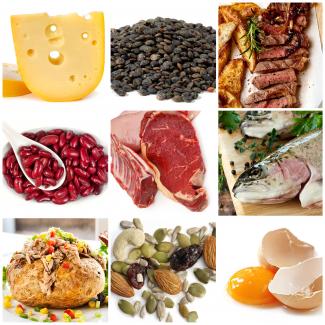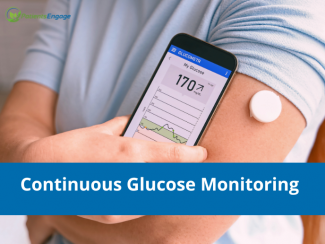
From protein supplements to high-protein diets, nutritionist Kohila Govindaraju tells you all you need to know about choosing the right proteins. Plus, protein-rich food combos for vegetarians.
1. Protein makes up 17% of our body weight.
It exists in muscle, skin, bone and organ tissues. Proteins are also part of enzymes, antibodies, lipoproteins, hormones, haemoglobin, albumin and our body cannot function without it.
2. What is protein?
Protein is composed of 20 amino acids. More than half of these (called non-essential amino acids) can be synthesised by the human body. Nine of them (called essential amino acids) should be obtained through the diet, for the body cannot manufacture them!
3. Essential amino acids – why do we need them?
There are 9 essential amino acids: Histidine, isoleucine, leucine, lysine, methionine, phenylalanine, threonine, tryptophan, and valine. They have a vital role in regulating your mood & sleep, muscle metabolism, fatty acid metabolism, the production of sulphur, regulating blood sugar, aiding the production of collagen, antibody formation, and regulating the central and peripheral nervous system.
Proteins' functions are really wonderful and amazing!
For example, Tryptophan helps maintain your body's serotonin and melatonin, the neurotransmitter levels that play a vital role in the regulation of mood and sleep. Low levels of Tryptophan can lead to depression and insomnia. Chocolate, mangoes, dairy products, oats, eggs, fish, chickpeas, sunflower and pumpkin seeds are good sources of Tryptophan. Drinking milk before bed, makes sense!
Leucine, another essential amino acid, increases muscle mass and helps muscle recovery after exercise. Dairy products, meat, soy protein, nuts & seeds (sesame, sunflower, pumpkin) are listed as good sources of leucine.
4. Foods with complete and incomplete protein
Animal protein (including dairy) and egg are considered high-quality, high biological value and complete protein foods, for they contain all the essential amino acids.
Beans and peas are good sources of plant proteins and they also provide iron and zinc. But plant proteins are referred to as incomplete protein, for they are deficient in one or more of the essential amino acids. For example, grains tend to be low in lysine and beans are low in methionine and cysteine. Of the plant proteins, soy and quinoa are considered complete and high-quality protein! Almonds are rich in omega-3 fatty acids, protein, vitamins A, B,and E & essential minerals like calcium, magnesium, potassium and phosphorous and need no fortification!
Related reading: Vegetarian Proteins is the way to go!
5. Getting enough protein on a vegan diet
Vegans should consider the quality of protein while planning their meal. It is important to consume a variety of plant protein foods to get all the essential amino acids over the course of the day. It is very easy to meet the recommendations for protein through a varied diet. The key is to consume a variety and the right amount of foods to meet your calorie and nutrient needs.
The best way to do this is to consume ‘complementary proteins’ – i.e. a combination of plant proteins that together make a complete protein (with all the essential amino acids).
Here are some examples of complementary proteins: Beans and rice; beans and corn; beans and wheat; avocado and beans or corn; whole wheat pasta with white cheddar; yoghurt with flax seeds; green salad with nuts & seeds; mango & quinoa salad (quinoa provides all 9 essential amino acids and is gluten free); whole wheat or rye bread and peanut butter.
6. Choosing the right protein sources
When choosing proteins, pay attention to the package of the protein, too. For example, in beans, nuts, seeds and whole grains, the protein comes in a package with healthful fibre and micronutrients. When you consider meat or whole milk, it is just the contrary! The protein comes packaged with unhealthy fat!
Though animal proteins are considered high-quality, high biological value and complete protein food, they are also high in saturated fats. Diets high in animal fats bring risk of heart disease. So, go lean with protein, choose:
•Round steaks top loin, top sirloin, chuck shoulder - the leanest beef cuts.
•Boneless, skinless chicken breasts and turkey cutlets - the leanest poultry choices.
•Choose boiling, broiling, grilling, roasting or poaching cooking methods instead of frying.
•Avoid breading or battering the meat, poultry or fish. Breading adds calories, battering absorbs more oil thereby increasing the calories!
•Opt for low-fat dairy products.
For recommended daily amounts of protein, go to: http://www.choosemyplate.gov/printpages/MyPlateFoodGroups/ProteinFoods/food-groups.protein-foods-amount.pdf
7. Protein supplements
Protein supplements are in the spotlight these days! There are many advertisements for protein supplements, like whey protein, casein, soy protein, protein-energy bars & cookies, testosterone-fuelled protein products. Do you need them? Many nutritional experts say “No” to supplements.
A balanced diet rich in fruits, vegetables, whole grains, low-fat dairy products, nuts and lean meats & sea foods will give you all the protein and essential nutrients your body requires for optimal health.
And contrary to what many believe, vegetarians do not need to take protein supplements.
Even for athletes, protein supplements should only be taken upon consultation with doctors and sports dietitians based on their training load, daily energy requirements, and their general dietary intake. Many protein-amino acid supplementation are linked to dehydration, hypercalciuria, weight gain and stress on liver & kidneys! So, in general, athletes are encouraged to opt for small, frequent servings of high-quality protein-rich foods that will not only provide adequate protein but also other nutrients that the body requires! Why take supplements when you can get good amount of protein, vitamins, minerals from the balanced food you eat every day?
8. High-protein diets
There are many articles touting high protein diets. These high-protein diets are gaining popularity among those who want to drop pounds and build muscles. Totally misguided. These plans restrict carbs and the major source of protein are red meat and full-fat dairy products, rich in saturated fats that raises the risk of cardiac disease! So, protein alone, as a tool for weight loss or weight maintenance, should not be encouraged.
Well-balanced meals with regular physical activities, everyday, help manage your weight easily.
References
http://www.sportsdietitians.com.au
American Heart Association (2001, October 10). High-Protein Diets Not Proven Effective And May Pose Health Risks. ScienceDaily. Retrieved December 31, 2013, from http://www.sciencedaily.com-/releases/2001/10/011010074524.htm
Shane Bilsborough and Neil Mann, A Review of Issues of Dietary Protein Intake in Humans, International Journal of Sport Nutrition and Exercise Metabolism, 2006, 16, 129-152
Margo A Denke, MD, Metabolic effects of High-Protein, Low-carbohydrate diets, American Journal of Cardiology Vol 88 July 1, 2001
Ioannis Delimaris, Adverse Effects Associated with Protein Intake above the Recommended Dietary Allowance for adults, Volume 2013, Article ID 126929






